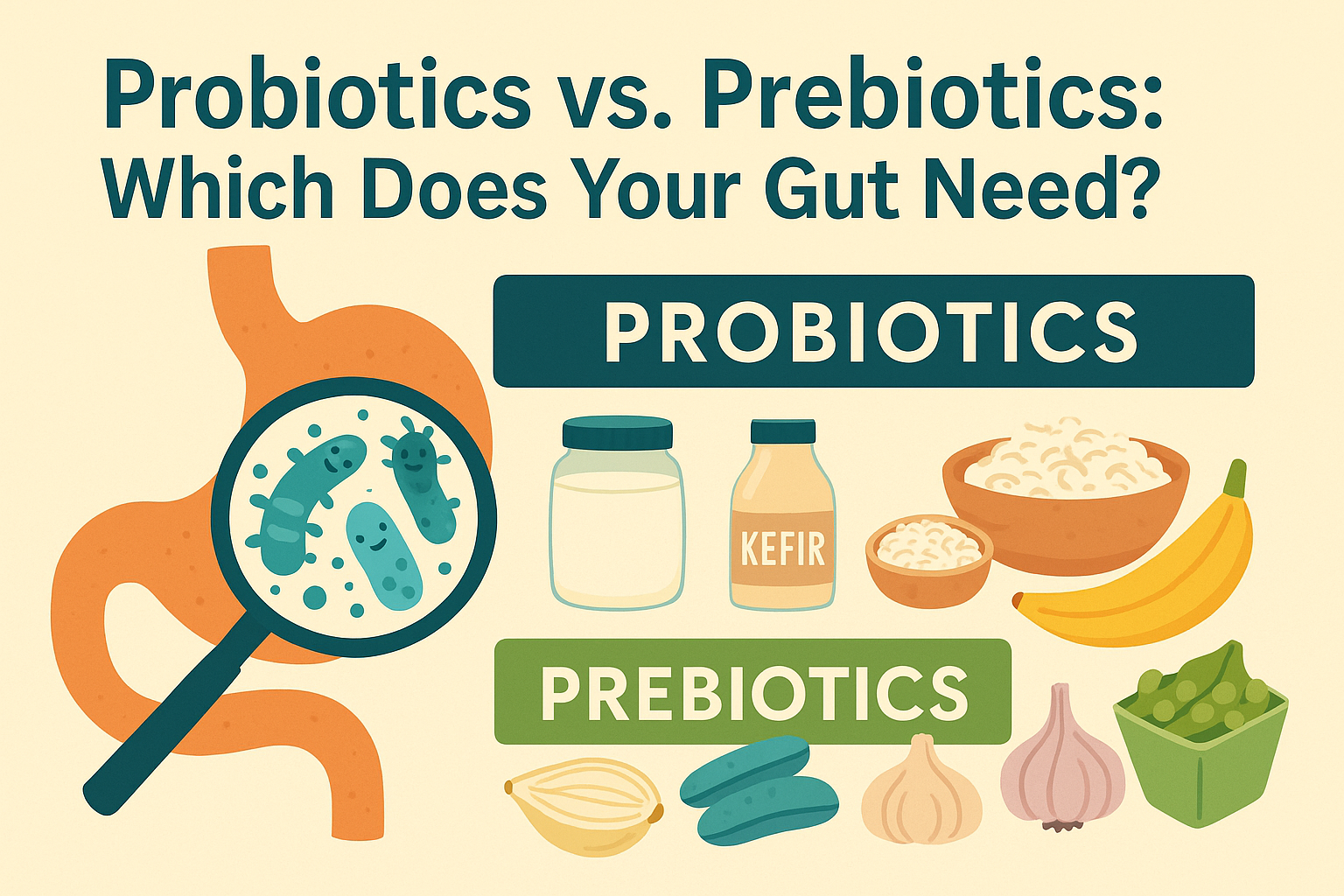Your gut is home to trillions of microorganisms that play a crucial role in gut health and overall well-being. But when it comes to nurturing this complex ecosystem, you may wonder whether you need probiotics vs prebiotics, or perhaps both. This guide will define each, explore their benefits, and help you decide which supplement or food to incorporate for optimal digestive support.
What Are Probiotics?
Probiotics are live microorganisms—often bacteria or yeasts—that, when consumed in adequate amounts, confer health benefits on the host. Common probiotic strains include Lactobacillus, Bifidobacterium, and Saccharomyces boulardii. These “good” bacteria can:
- Balance gut flora: Replenish beneficial bacteria after antibiotics or illness.
- Support immunity: Stimulate immune cells in the gut lining.
- Improve digestion: Aid in breaking down lactose and other nutrients.
- Reduce inflammation: Modulate gut-related inflammatory responses.
What Are Prebiotics?
Prebiotics are non-digestible fibers and compounds that feed and nurture the beneficial bacteria already living in your gut. By serving as “fertilizer” for your microbiome, prebiotics help your existing probiotics thrive. Key prebiotic sources include:
- Inulin and Fructooligosaccharides (FOS): Found in chicory root, onions, garlic, and bananas.
- Galactooligosaccharides (GOS): Present in legumes like lentils, chickpeas, and beans.
- Resistant Starch: In cooked-and-cooled potatoes, rice, and green bananas.
Key Differences: Probiotics vs Prebiotics
| Aspect | Probiotics | Prebiotics |
|---|---|---|
| Definition | Live microbes | Non-digestible fibers |
| Function | Introduce beneficial strains | Feed existing strains |
| Sources | Yogurt, kefir, sauerkraut, supplements | Onions, garlic, bananas, legumes |
| Primary Benefit | Repopulate gut microbiota | Enhance growth of good bacteria |
Which One Do You Need?
Most individuals benefit from including both probiotics and prebiotics in their diet, as they work synergistically to support digestive support and gut health. Consider the following:
- After Antibiotics: A course of antibiotics can deplete beneficial gut bacteria. A probiotic supplement or fermented foods can help restore balance.
- Constipation or Bloating: Prebiotic fibers improve stool bulk and feed helpful bacteria that produce short-chain fatty acids, which soothe the intestinal lining.
- Immune Support: Regular intake of both helps modulate immune responses and may reduce risk of gastrointestinal infections.
- Chronic Digestive Issues: Conditions like IBS or IBD may respond to targeted probiotic strains; always consult a healthcare provider before starting.
How to Incorporate Both
- Start with Foods:
- Probiotics: Include a daily serving of yogurt, kefir, kimchi, or miso.
- Prebiotics: Add onions, garlic, leeks, asparagus, or beans to soups and salads.
- Consider Supplements: Choose a broad-spectrum probiotic with at least 10 billion CFU, and a prebiotic supplement containing inulin or FOS if dietary intake is low.
- Monitor Tolerance: Increase doses gradually to minimize gas and bloating; adjust based on your body’s response.
Conclusion
Understanding probiotics vs prebiotics is essential for crafting a personalized strategy to support your gut health and digestive support. By combining live beneficial cultures with the fibers that fuel them, you create an optimal environment for a resilient microbiome—laying the groundwork for improved digestion, immunity, and overall well-being.

